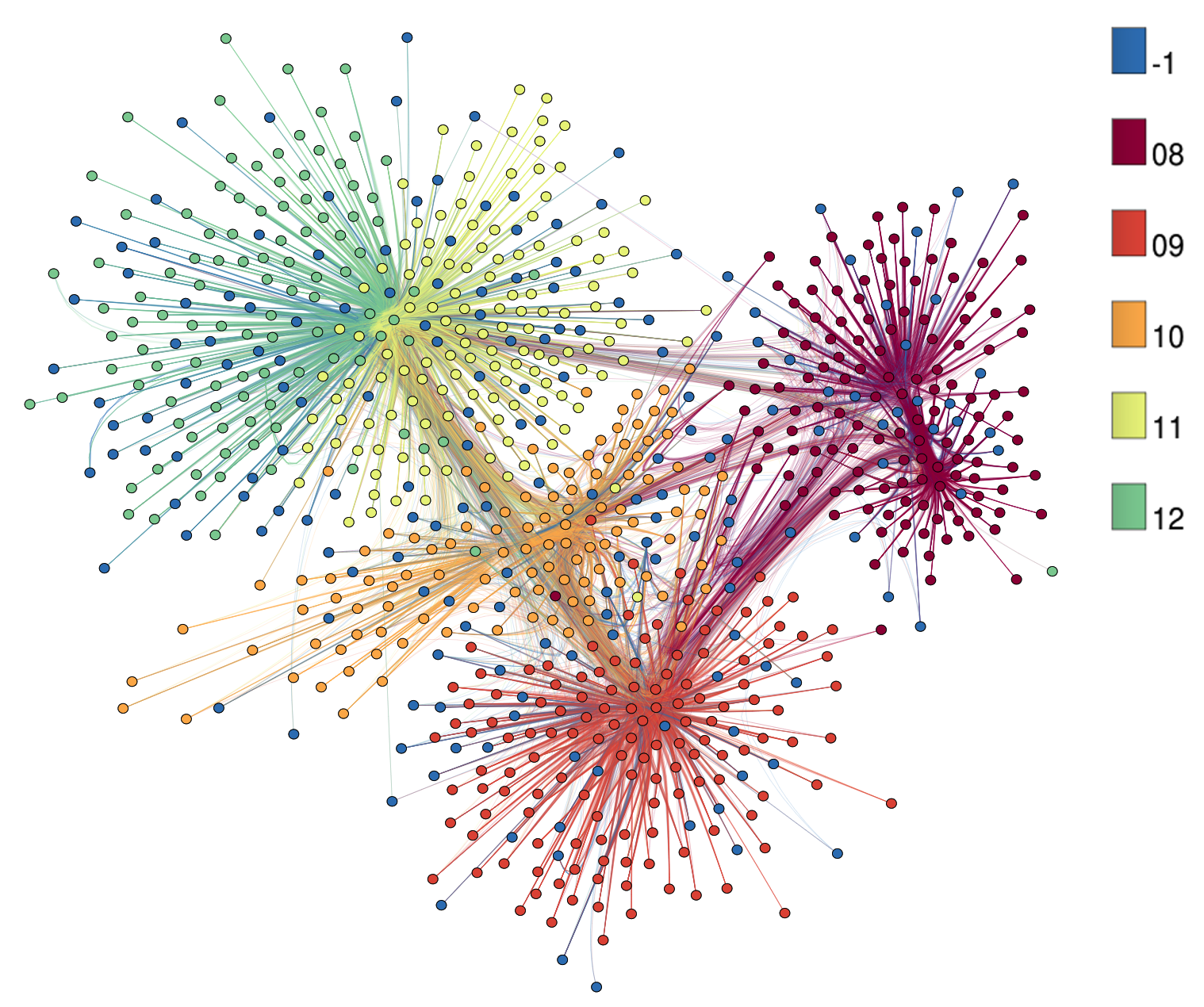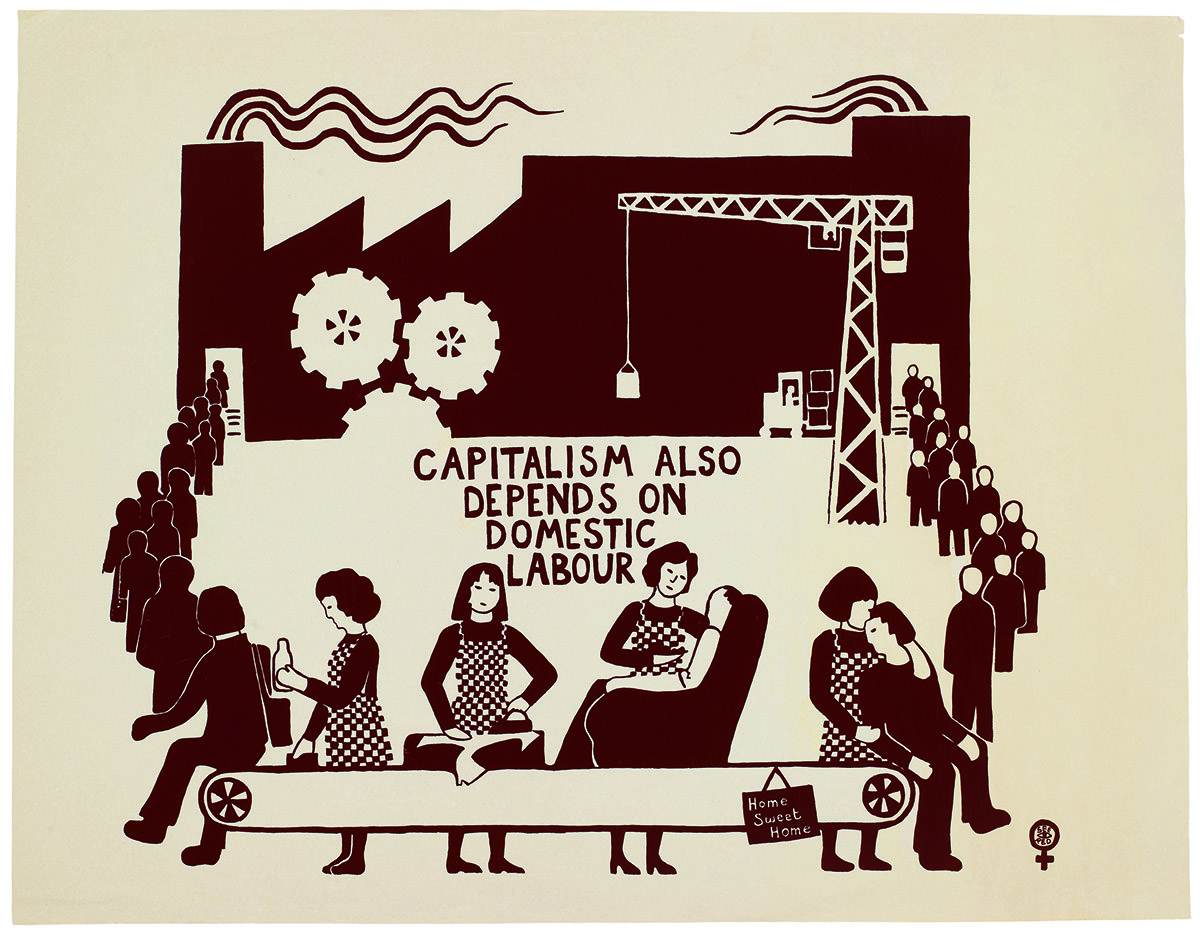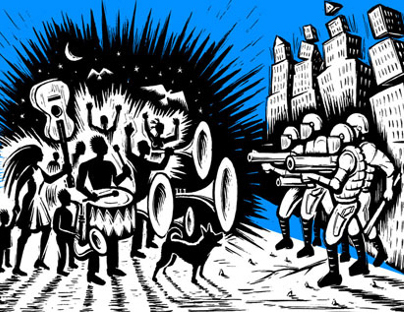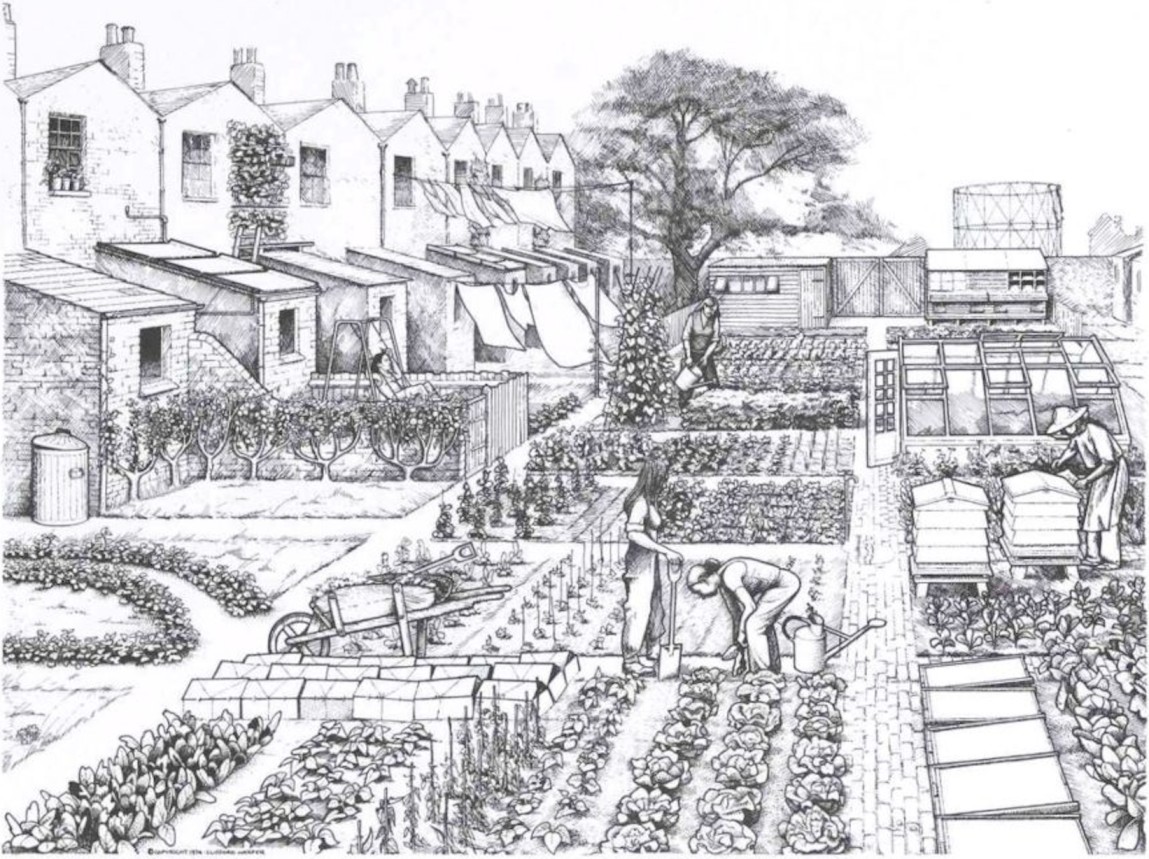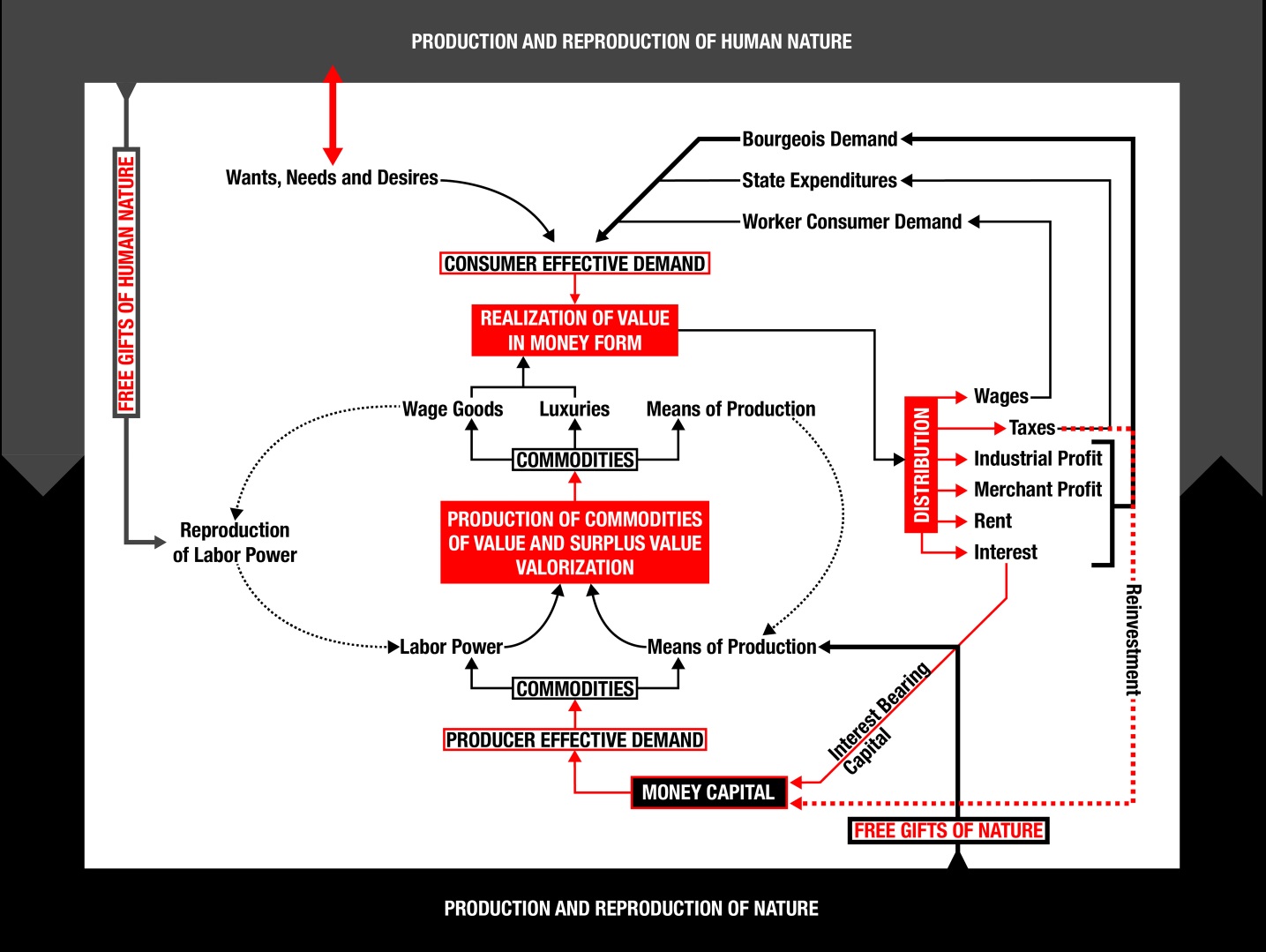This is an edited version of a talk given at Fast Forward 2017. It serves as an introduction to the politics of the commons.
1) Where have you heard it before?
As capitalism continues to stagger through a never-ending series of crisis, people in the left have started to think about alternative ways of organising not only the economy but their lives. Workers cooperatives, open source platforms, and peer-to-peer networks are three concepts people have been using to describe alternative ways of organising the work that people do. Alongside these concepts, increasing numbers of people are taking up the idea of ‘the commons’.
It’s not just the left that has taken up the commons as an idea. From the UN to local libraries (‘knowledge commons’); from insurgent indigenous militants to gentrified housing developments (whose roof terraces are being described as ‘living commons’). Alongside the rebranding of social spaces as commons, or the use of the name ‘commons’ to hide privatization programs (i.e., the World Bank), the commons has also been used to name parts of state-owned infrastructure. For instance, the NHS is called a health commons because it’s a known and loved institution, or municipal parks are named “common land” because they are open to all.
So, on the one hand the commons is used as a kind of catch-all phrase for describing spaces that people use in different (often contradictory) ways. On the other, we have academics and political theorists talking about global or planetary commons, the atmosphere as a commons, etc., making the commons something that seems to be everywhere and nowhere at the same time. It is described as a hidden core of human society, something that people do all the time but we just don’t see ‘it’ beneath capitalism, etc.
What’s missing in most accounts of the commons is a practical definition, one that doesn’t start from either the commons as just another form of ownership or property, or from philosophical abstractions that ignore the at times radically different conditions of our lives.
This article starts with the idea that the commons is something different to property. Property, by definition, belongs to someone, be that public property (owned by the state) or private property (owned by the market). But the commons we want to talk about is not a kind of property. Outside of the binary of state or market, the commons we’re talking about names a thing made and remade through collective activity. This thing is not a resource or even necessarily a place. It is what we could call a condition of life.
2) How are we defining the commons?
While there is no one ‘commons’ or activity of ‘commoning’, we can set out a rough guide to commoning that draws a range of different activities together as a political tendency. If we want to define the commons and commoning as political and not economic concepts, then we need to set them out as a political practice that is not concerned with managing resources but reproducing particular social and environmental relations. It is a way of making and maintaining a social world.
While there is no single definition of the commons, or of commoning, there are a few characteristics that most commons share.
A: Commons are always somewhere.
Commons are always somewhere. They exist in some place and are embedded in the material world. This means that a commons is not just an expression of human activity – what people do or don’t do – but also of environmental and physical forces. And this means that while they don’t have borders they do have boundaries, even if those boundaries are fluid or ‘fussy’. How a particular commons works, what it can and can’t do, is a product of the activity of things like the weather, animals, the qualities of terrains and seasons, the capacities of different materials and technologies, etc., and not just human activity. The form a commons takes depends on the technologies, territories, ecologies and connections through which it is made.
B: Commoning is the making of a community or collective.
Commoning is not something you do on your own, or just ‘a place’ – it names a collective activity. Because commoning is always done with other people it is a way of making a collective. Importantly, because commoning always involves relationships with specific environments, materials, etc., it is a community that includes more than just the people in it: commoning is a way to break down the barriers between people and the rest of the world, to include much more than just other people in our communities and social relations.
C: Commoning calls for knowing.
To participate in an open source community you need to know how to code. To put sheep out on a common pasture means understanding not only your sheep and how to herd them, but knowing the pasture, the rhythms of seasons and patterns of weather, etc. The maintenance of a commons relies on the transfer of knowledge – there’s no benefit to holding back from others what you know. Knowledge isn’t law – it’s customs, crafts, arts, an understanding of how a process or place works and endures.
D: Common rights
Someone who relies on a commons for food, water, software, housing, etc., doesn’t have the right to a commons just because they rely on it. Commoner rights are labour rights. It is through commoning that someone can lay claim to a common, and feel like they have responsibility to work it. They are never individual rights though, because commoning is always a collective practice. This does not mean that a group of commoners wouldn’t also look after those who couldn’t work the commons (because of age, ability, etc.). It is to say that social care and obligations don’t necessarily come from commoning but are part of broader social and political commitments and beliefs.
E: Commoning is a way of providing for the collective.
Commoning is about food, water, pasture, sociality, care… In short, it is a practice that reproduces the conditions of life, collectively. Commoning makes lives liveable. This is what makes it a political threat. Commoning is a political act because it produces communities who aren’t reliant on either the wage or the state for their material survival: they are the basis of our capacity to resist and to live autonomous lives.
3) How is this politically useful?
Commons are useful because they are a way of overcoming the divisions and separations that are the basis of capitalism, and the foundation of state power. Commoning, like unions or political parties, creates social relations that aren’t mediated by the wage, workplace, the school, dole office or government policies. Though unlike unions and parties, it is one that produces a material autonomy, and not just a political or social autonomy.
The material autonomy comes from bringing together production and reproduction. A commons is a place where something that we need to live is both produced and consumed. The code made by open source coders is used to build other programs, run servers and websites, etc. Commoning undermines the separation between production and consumption, the wage and what it buys. Commoners produce for themselves. Commoners organise themselves. The act of commoning refuses both the market and the state.
Material autonomy is useful because it allows more political autonomy. What we mean by this is you need both strong collective political support and the means of subsistence to avoid going back to work during a strike. That is, if you have access to a series of commons that mean you can continue to live without a wage, at least partially – then you have more power to strike, revolt, fight the state and capital. Not being reliant on either the market or the state to reproduce yourself or your community fundamentally gives you more power – this could be called counter-power: the power to refuse and remove the power of capital and the state.
The separations that commoning overcomes are not only those between functions like consumption and production, but they are geographical as well: between where we live and work, private and public, but also the city and countryside, the urban and nature. The assignment of certain production industries (food, energy) to the countryside and others (information, consumer goods) to the cities is a dynamic backed by the idea of nature as an endless resource for humans to use for their own ends. This construction, we think, was not invented by capitalists but has provided a very useful excuse for them to pursue their extraction projects.
From the conquering of Australia to the USA to Indonesia, land that was worked in common became somebody’s land. Colonialism was a process of enclosure and theft. This process involved changing not only the who could access the land (through privatisation) but the social status of those people who had worked it in common. Colonialism meant making indigenous peoples, commoners and peasants into criminals. The very idea of ‘stealing land’ started with our theft of their land. Not only were people robbed of their commons, they were left separated from the world in which they lived, often pushed into marginal spaces or cities, fodder for factories and mills.
To succeed as a practice, commoning needs to undermine or remove the boundaries between the city and countryside, putting the city into the countryside and the countryside into the city. Commoning needs to take up questions of restoration and care for the environment as much as it does questions of social justice if it is to succeed as a practice.
4) What are the practical limits to application?
Just how practical is it to think that we can make our lives autonomous from the state and the market? What are the barriers to doing so?
A good place to start is with clarifying what we would be trying to make common. If we are talking about the conditions of our lives, then we need to start with those things that we need to have a good life, not just to survive. Starting from survival means reducing our lives down to sparse, bare kinds of lives, which is exactly what the process of austerity and immiseration within capitalism is. We need to start with everything that makes our lives liveable, from parties and love to food and shelter.
So, a few initial ideas would be energy, food, housing and space, care (health, old age, childcare), music, booze, and travel.
As soon as we start to imagine how we could collectively organise things like housing, energy, and food we run up against the first and most formidable challenge to commoning – property laws. These are laws produced often to undermine or destroy common rights. So not only are a lot of the things we’d want to common already owned by someone else, such as an individual, a corporation or the state, but the current laws and regulations all make it difficult if not impossible for something to be held in common. To make housing stock or a care home a commons then means finding a way to take them out of private or state ownership and under the control of a community or collective and find a way to resist someone in that community or collective having to take legal ownership of the housing stock or care home.
Existing ownership and legal structures mean commoning the things that we need to live requires taking action against the rich. It means taking what we want off them, out of their control, and refusing to common within their rules. Such action requires a degree of autonomy to start with. We need to have some collective power to even begin to common right here, right now.
Thinking about health care, another barrier comes up. How could we make health care into a commons? Knowledge is a limit here, but less than we think in all likelihood. A major barrier to learning is often the way the (higher) education system is based around the maintenance of capitalism, rather than in teaching the population the skills it needs to live. But perhaps a bigger barrier to creating health care commons is the equipment it requires. It could be that commoning necessarily calls for less technically complex solutions, for systems of production that people can exert more control over. Or, perhaps there would be some things that require an even longer-term effort to common. In that instance, we need to ask what do we need to make sure that the things we need to live are not withheld from us? Is it regional assemblies? Unions or syndicates? Communes?
So commoning is not a total solution, only one of an array of strategies we can use to emancipate ourselves. The vision of collectively producing our social and environmental relationships, with a commitment to making our lives worth living, and to making those ways of life things that can endure across generations – as a political horizon, an aspiration – makes commoning a powerful praxis.
5) What are the political limits to application?
There are several limits to the commons that are worth considering. The first is that because a commons can make people less dependent on the wage or the state it can have the effect of enabling below-subsistence wages. This is a real possibility with organisations like the World Bank seeing commons as a way of propping up informal or under-paid work, but it’s a risk that must be negotiated moment by moment.
Ideally in the commons, the fusion of the roles of producer and consumer should come with a coincidence of desires – but this pairing shouldn’t be taken for granted. It may be that there are many things that need to be done but no one wants to do. It is impossible to take up commoning as a practice without also asking some basic questions about what we want to do, how and with whom, all of which we must ask while keeping in mind the effects of capitalism on our desires. And not only this – many of the things we need to do to live require skills and knowledge many of us don’t currently have. As such, one political barrier to commoning may be the time and space to unlearn some things and learn others.
Communities also come with a whole range of customs, hierarchies, repressions and violence. It may be that sexist, homophobic and racist norms and power structures limit the egalitarian nature of real existing commons in the present. As commoning is a collective activity focused on making our lives liveable, it tends against gendered and racialized social relations, which rely on some work being waged and other work being unwaged and ‘naturalised’ (like childcare). Whilst commoning tends towards egalitarian structures, this doesn’t mean they are necessarily so, or that there aren’t barriers (and resistance) to the transfer of knowledge and skills necessary for everyone to participate equally in a commons. Communities and commons need to be interrogated as to what they do to our lives.
The commons is a complicated vision of autonomy, where freedom from and freedom to are brought together in a messy experiment. Commoning is not ‘the’ solution, but it is a crucial tool to be used in building liveable lives in, against and beyond the state and capital.

